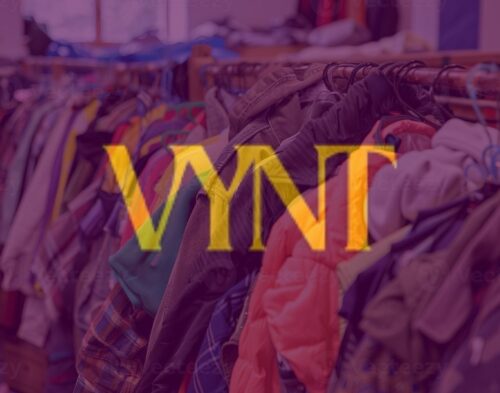
In many Nigerian celebrations (weddings, burials, birthdays), aso-ebi, a uniform fabric worn by guests, symbolizes unity and support. Yet, once the event is over, these outfits often lose their relevance and are left to gather dust or eventually discarded. Despite being high-quality garments, they contribute to fashion waste due to low reuse value and poor recycling options.
Enter Vynt, a social commerce marketplace launched to make fashion resale seamless, stylish, and sustainable. The platform encourages users to embrace “vynting”, their own term for thrifting as a smarter alternative to waste and hoarding. “Our goal is to give pre-loved items a second lover and another chance at life,” said Tolu Okoya-Thomas, Founder & CEO, Vynt.
Launched in March 2025, Vynt’s mobile app has already attracted nearly 2,000 users. It’s more than a resale platform it’s a vibrant community where users can shop, sell, and connect with friends, influencers, and fellow fashion lovers, all within a familiar social media-like experience.
The idea for Vynt was born from Okoya-Thomas’s personal struggle with closet clutter. After relocating from the UK to Nigeria, she saw a gap: unlike Depop—a thriving UK thrift platform—there wasn’t a digital resale community catering to Nigeria’s growing fashion-conscious population. Starting with Instagram sales, she soon discovered a real appetite for structured, secure, secondhand fashion.
The timing couldn’t be more relevant. Globally, fashion accounts for about 10% of greenhouse gas emissions and 20% of wastewater. With fast fashion accelerating clothing turnover, landfills are filling up faster than ever. Though Nigeria has long embraced secondhand clothing culture through informal markets like Bend Down Select, the process lacked digital infrastructure—until now.
Vynt fills this void by acting as a trusted intermediary between buyers and sellers. It verifies the quality of each listed item from clothes to shoes to accessories, ensuring they’re clean, wearable, and authentic. “We do not accept counterfeit or inauthentic luxury items,” Tolu Okoya-Thomas mentioned.
Once an item sells, Vynt arranges convenient logistics, including pickups and drop-offs through the Vynt Hub. Buyers can track their orders in real time, and payments are held in escrow to prevent fraud. Sellers are only paid after the buyer confirms satisfaction.
Currently, selling is limited to Lagos, allowing Vynt to maintain its high standards. However, buyers across Nigeria can shop from anywhere, with reliable delivery handled by the platform.
Beyond resale, Vynt also empowers individuals and brands financially. Sellers don’t need to list their own items they can source thrift fashion from local markets and resell them. Vynt also partners with brands to help offload unsold stock, turning potential losses into profit while promoting circular fashion.
More than a marketplace, Vynt is committed to educating users about the environmental and financial impacts of their fashion choices. The platform opens up new opportunities for financial independence and social inclusion by making quality fashion accessible to all. “We want people to say, ‘Did you Vynt that?’ Our goal is to champion circular economies across Africa, helping people earn while embracing sustainable living,” Tolu Okoya-Thomas stated.
With its bold mission and growing user base, Vynt is not just redefining resale—it’s reshaping the future of fashion in Nigeria and, eventually, across Africa.



